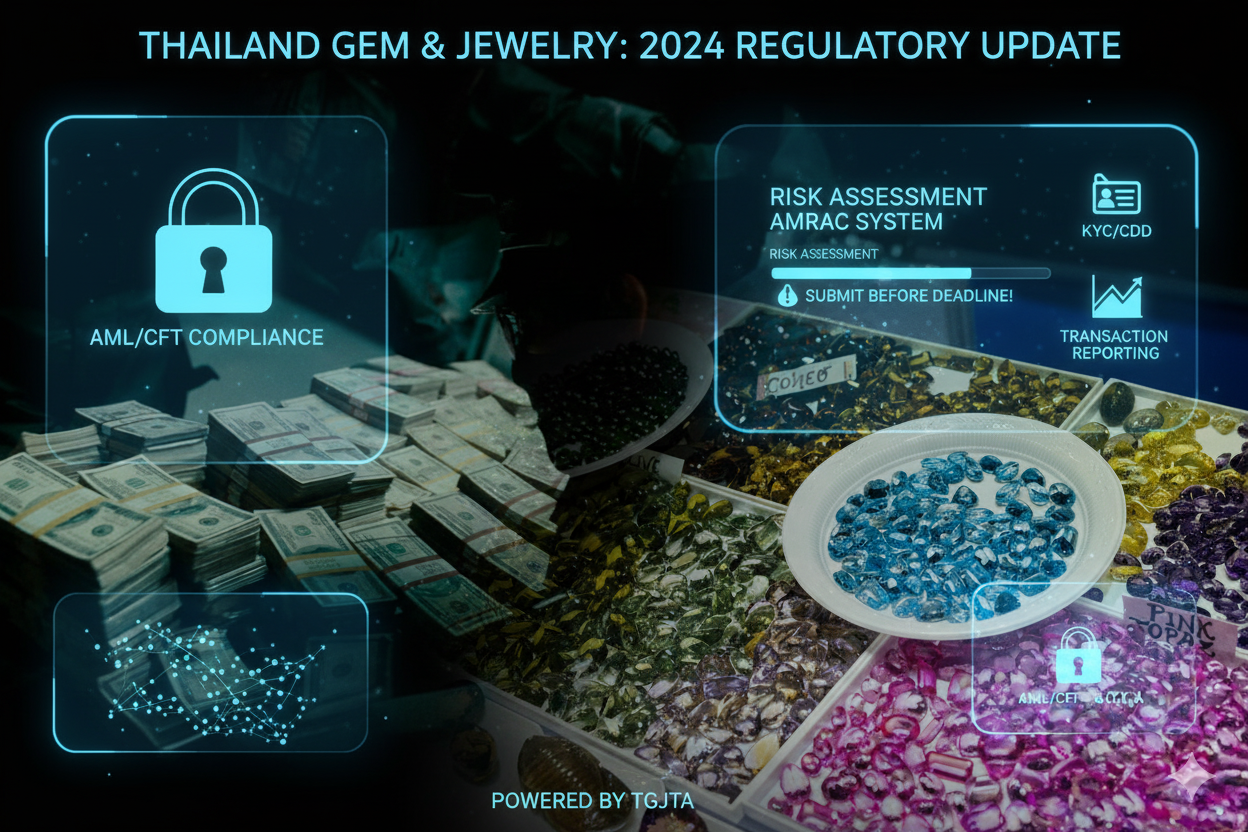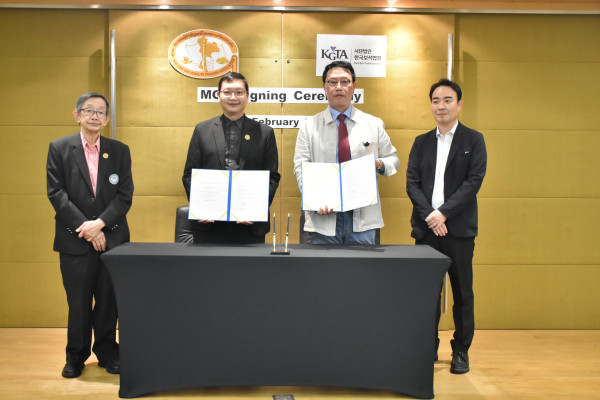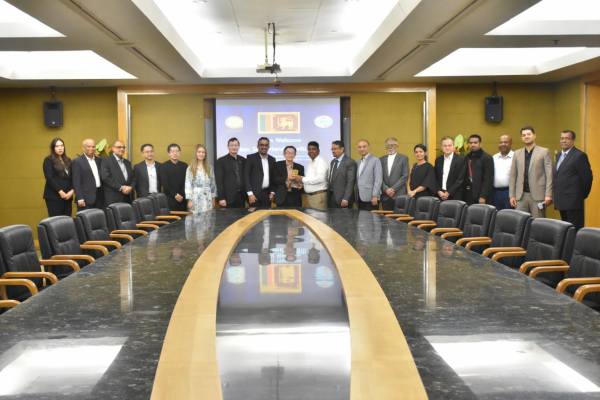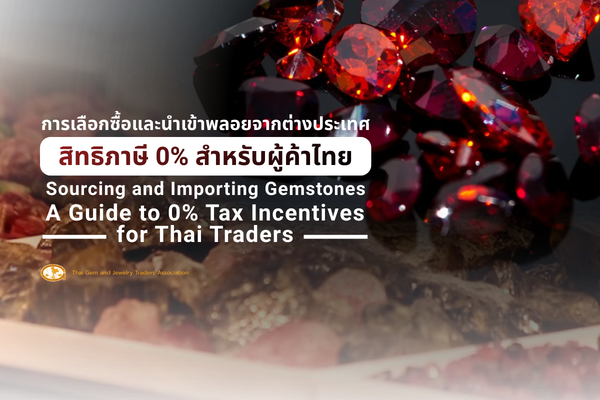


In the global gem and jewelry industry, sustainable success transcends the artistry of the pieces themselves; it is fundamentally built upon a foundation of integrity and strict regulatory compliance. The Royal Thai Government's laws on Anti-Money Laundering and Combating the Financing of Terrorism (AML/CFT), enforced by the Anti-Money Laundering Office (AMLO), represent a critical legal framework that safeguards your business.
While these regulations may seem complex, they are designed to protect your enterprise from significant legal and financial risks, enhance your credibility on the international stage, and prevent your business from being unwittingly exploited for illicit activities.
A key regulatory update for 2024 mandates that all designated businesses must submit a formal risk assessment report to AMLO. This guide from the Thai Gem and Jewelry Traders Association (TGJTA) provides a clear and actionable summary of your obligations to ensure seamless compliance.
If your business operations include any of the following activities, you are classified as a "Reporting Entity" under Section 16 of the Anti-Money Laundering Act B.E. 2542 (1999) and its amendments, and must adhere to the obligations outlined herein.
[ ] Engaged in the retail or wholesale of gems, diamonds, precious stones, gold, or jewelry.
[ ] Involved in the import or export of gems and jewelry.
[ ] Operating as an antique dealer that trades in jewelry.
[ ] Purchasing gold, gems, or jewelry from the public (this includes factories and licensed pawn shops).
An effective AML/CFT compliance program is built upon five essential pillars. Reporting Entities are legally required to implement and maintain all five components.
Establish a Written Internal Policy (Internal Controls): Develop and implement a comprehensive, board-approved AML/CFT policy and procedural manual. This ensures consistent standards and clear guidance for all personnel.
Conduct a Comprehensive Risk Assessment: Systematically identify and analyze your business's exposure to money laundering and terrorist financing risks across your client base, products, services, and delivery channels. (This is the most critical new mandate for 2024 requiring submission to AMLO).
Implement Customer Due Diligence (CDD/KYC): Perform robust identity verification and risk-profiling for all clients in accordance with legally defined transaction thresholds. This is commonly known as "Know Your Customer" (KYC).
Report Qualifying and Suspicious Transactions: File timely reports with AMLO for high-value cash transactions and any transaction reasonably suspected of being linked to illicit activities.
Maintain Thorough Records (Record-Keeping): Securely retain all documents related to customer due diligence and transaction records for the legally mandated period (typically 5-10 years).
This is the most urgent regulatory requirement for 2024. Effective from June 5, 2024, AMLO mandates that all gem and jewelry dealers must prepare and submit a formal report on their business's AML/CFT risk assessment.
Why is this mandatory? To demonstrate to AMLO that your business has a clear understanding of its inherent risks and has implemented appropriate mitigation measures, in line with national efforts to combat financial crime.
What are the consequences of non-compliance? Failure to submit the report will result in your business being automatically categorized as "high-risk." This may trigger heightened regulatory scrutiny, formal investigations, and potential criminal proceedings.
What are the required actions?
Conduct an immediate and thorough risk assessment of your business operations.
Formalize this assessment into an official report.
Register on and submit the report via AMLO's official online portal, the AMRAC system, within the prescribed deadline.
AMRAC (Information System for Assessment, Monitoring, Reporting and Case Management) is the centralized, secure online system established by AMLO. All Reporting Entities must use this portal to register their business and submit the mandatory risk assessment.
Steps for AMRAC System Registration (Actionable Now!):
Navigate to the official website: amrac.amlo.go.th
Click on "Register User (For Reporting Entities)."
Select the correct business category: For TGJTA members, choose the group "Persons conducting a business under Section 16 (2) relating to gems, diamonds, precious stones, gold, or jewelry..."
Complete all required fields with your company/store information and the details of your designated compliance coordinator.
Await a confirmation email. Upon successful registration, the system will email a Username and Password for logging into the portal.
Once logged in, you are required to complete all sections of the risk assessment questionnaire (Parts A-D) and submit the finalized report through the system.
Customer Due Diligence (CDD), or Know Your Customer (KYC), is your first line of defense. You are legally obligated to perform KYC for occasional customers conducting transactions with a value of THB 100,000 or more.
| Customer Type | Required Identification Document |
| Thai Nationals | Official Thai National ID Card (original) |
| Foreign Nationals | Passport (original) |
| Corporate Entities/Juristic Persons | Certificate of Corporate Registration (issued within the last 6 months) |
Export to Sheets
For high-risk clients, such as Politically Exposed Persons (PEPs), you must perform Enhanced Due Diligence (EDD), which includes obtaining further information on the source of wealth and source of funds.
Reporting obligations are divided into two primary categories.
You must report transactions that meet or exceed the following value thresholds:
Transactions involving "cash" of THB 2,000,000 or more.
Transactions involving "assets" (e.g., gems, jewelry) of THB 5,000,000 or more.
No minimum value threshold applies.
You must file an STR with AMLO within 7 days of identifying any "red flags" or reasonable grounds for suspicion. Examples include:
A customer attempting to structure payments to fall below reporting thresholds.
A customer providing false, misleading, or refusing to provide required KYC documentation.
A transaction that appears overly complex or lacks an apparent economic or lawful purpose relative to the customer's known profile.
Absolute Prohibition: Tipping-Off It is a criminal offense to inform a customer or any third party that a suspicious transaction report (STR) is being filed or has been filed in relation to their activities. This act, known as "tipping-off," carries severe legal penalties.
Failure to comply with AML/CFT regulations carries severe penalties that can have a devastating impact on your business and personal liberty:
Administrative Fines: Up to THB 1,000,000 for procedural failures.
Daily Fines: An additional fine of up to THB 10,000 per day until the violation is rectified.
Criminal Penalties: Imprisonment for 1 to 10 years for direct involvement or complicity in money laundering offenses.
Personal Liability: Directors, executives, and management can be held personally and criminally liable for compliance failures within the organization.

TGJTA held a signing ceremony for a Memorandum of Understanding (MOU) with the Korean Gem Trade Association to promote and develop the gems and jewelry industry between the Kingdom of Thailand and the Republic of Korea.

Thai Gem and Jewelry Traders Association welcomed Hon. Sunil Handunnetti, M.P., Minister of Industry and Entrepreneurship Development of the Democratic Socialist Republic of Sri Lanka, for discussions on strengthening bilateral cooperation in advancing th

Essential insights on international procurement, customs regulations, e-Customs procedures, and duty exemptions for the Thai Gem and Jewelry industry.